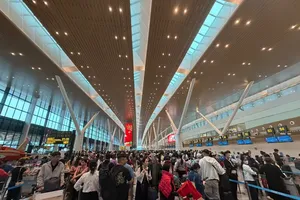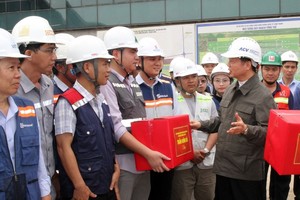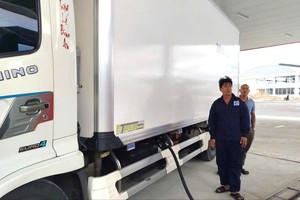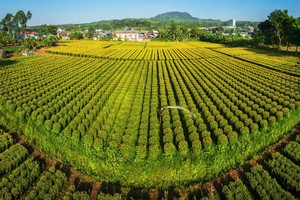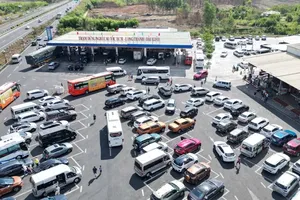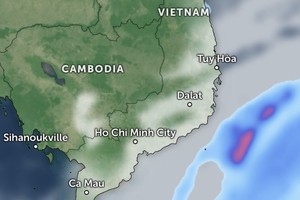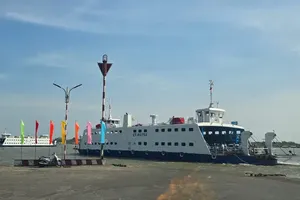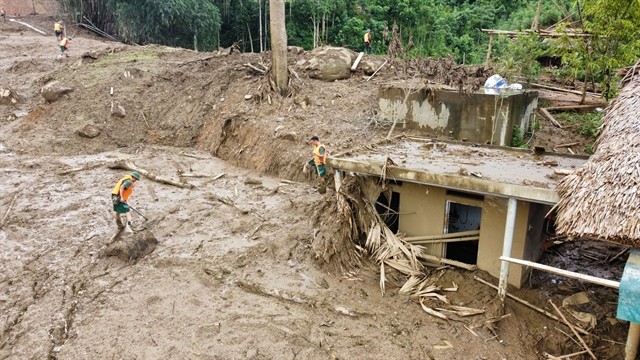
The ministry stated that despite urgent and coordinated efforts from the entire political system, including mobilising maximum resources for early and proactive prevention and response, Typhoon Yagi caused extensive damage in northern Việt Nam.
The typhoon was the most powerful storm to pass over the East Sea (known internationally as the South China Sea) in the past three decades, and the most devastating to hit the mainland in 70 years.
Its intensity and complex, unprecedented development resulted in substantial damage across 26 northern localities.
To date, the storm and subsequent floods and landslides have killed 318 people, while 26 remain missing. It resulted in injuries to another 1,976 people and caused severe psychological trauma to many in disaster-affected areas, particularly children, the elderly, and vulnerable groups.
The natural disaster also caused significant damage to public and private property in the affected areas.
Preliminary estimates place the total economic damage at over VND81 trillion, double the estimate reported on September 15.
Around 282,000 homes and 3,755 schools and school buildings were damaged, left roofless, flooded or buried by landslides.
Agricultural damage includes 285,000ha of rice, crops and fruit trees submerged or destroyed, 189,982ha of forest, 11,832 aquaculture cages damaged or washed away, and about 5.6 million livestock and poultry killed.
Many infrastructure facilities collapsed or were damaged, including power transmission lines, substations, telecommunications poles, fibre-optic cables and BTS stations, causing widespread loss of communication in severely affected areas.
There were 796 dike breach incidents and 820 damaged locations on national highways, along with many provincial roads damaged from landslides.
Additionally, 3,517 irrigation and water supply projects were damaged.
The ministry noted that the natural disaster could slow economic growth in the final quarter of the year in many localities. In the third quarter, growth may decline by 0.35 percent and in the fourth quarter by 0.22 percent, while the year’s GDP is estimated to decrease by 0.15 percent.
Although the country's GDP growth might still reach its goal of 6.8 to 7 percent, many production sectors have been hit hard.
The GRDP growth for 2024 in several provinces, such as Hai Phong, Quang Ninh, Thai Nguyen and Lao Cai, is expected to drop by more than 0.5 percent.
In response, several measures have been implemented to mitigate the aftermath of the storm. The Government's Resolution No. 143 mobilised nearly 700,000 people and almost 9,000 vehicles for storm and flood response.
Seven decisions were made to allocate resources from the central budget reserve to address the aftermath of the typhoon, including VND350 billion and 432,585 tons of rice from national reserves, along with 19 tons of chemicals, 3 million Aquatabs water purification tablets, and seeds.
The Central Committee of the Vietnam Fatherland Front also organized a donation drive to support those affected by Typhoon Yagi, and has so far received VND1.76 trillion (US$71.5 million) in both financial and material aid from people, businesses and organisations from inside and outside of the country. Leaders from various countries and international organisations have sent condolences and expressed solidarity with Vietnam over the storm damage.
International support totalling over US$22 million has been pledged to help Vietnam recover from the disaster. Of this, US$15 million in financial aid has been committed through the Ministry of Agriculture and Rural Development, with support from the Ministry of Foreign Affairs.
The Ministry of Agriculture and Rural Development has directly received over 220 tons of relief goods (worth US$3 million) from the governments of Australia, Switzerland, India, Russia and Singapore, as well as from international organisations. Goods were delivered promptly to the flood-affected areas via air transport, mostly to assist the people in the mountainous northern provinces of Yen Bai, Lao Cai, Cao Bang, Tuyen Quang, Lang Son and Bac Kan.




